Main CPGW Record
Surname: STEWART
Forename(s): Joseph Henry
Place of Birth: Skipton, Yorkshire
Service No: 2400
Rank: Private
Regiment / Corps / Service: Duke of Wellington’s (West Riding Regiment)
Battalion / Unit: 'A' Coy 1/6th Battalion
Division: 49th (West Riding) Division
Age: 20
Date of Death: 1915-08-27
Awards: ---
CWGC Grave / Memorial Reference: C. 6.
CWGC Cemetery: COLNE VALLEY CEMETERY
CWGC Memorial: ---
Non-CWGC Burial: ---
Local War Memorial: SKIPTON, YORKSHIRE
Additional Information:
Joseph Henry Stewart (born 21 April 1895) was the son of Jane Newby Stewart, née Hawkins. Jane was born at Castleford, Yorkshire and had married Joseph Stewart in 1892. Joseph died in 1893.
1901 Skipton, Yorkshire Census: 24, Rowland Street - Joseph H. Stewart, aged 5 years, born Skipton, son of Jane Newby Stewart, widow. [Head of the house was Arthur E. Longthorn, born Skipton c. 1875.]
1911 Skipton, Yorkshire Census: 24, Rowland Street - Joseph H. Stewart, aged 16 years, born Skipton, son of Jane N. Stewart. [Head of the house was Arthur Edwin Longthorn.]
Joseph's sister, Minnie Stewart, was married to Private Herbert Harper (16108) (q.v.).
The British Army Service Record for Joseph Henry Stewart exists but may be incomplete. In this record Joseph's father is named as Arthur Edwin Longthorn.
British Army WW1 Medal Rolls Index Cards: Pte J.H. Steward [name amended on second card to Joseph H. Stewart], 6/2400, West Riding Regiment. Theatre of War first served in: (1) France. Date of entry therein: 14 April 1915. Correspondence: 24, Roland [sic] Street, Skipton, Yorks.
See also: ‘Guiseley Terriers: A Small Part in The Great War – A History of the 1/6th Battalion, Duke of Wellington’s (West Riding) Regiment’ by Stephen Barber (2018).
Data Source: Craven’s Part in the Great War - original CPGW book entry
View Entry in CPGW BookEntry in West Yorkshire Pioneer Illustrated War Record:
STEWART, J.H., aged 20, 6th Duke of Wellington’s, of 24, Rowland Street, [Skipton], killed in France Aug. 30, 1915.
---
Click the thumbnail below to view a larger image.
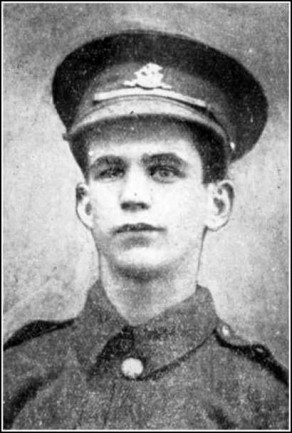
Private Joseph Henry STEWART
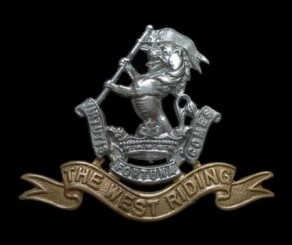
Regiment / Corps / Service Badge: Duke of Wellington’s (West Riding Regiment)

Divisional Sign / Service Insignia: 49th (West Riding) Division
Data from Soldiers Died in the Great War 1914 - 1919 Records
Soldiers Died Data for Soldier Records
Surname: STEWART
Forename(s): Joseph Henry
Born: Skipton, Yorks
Residence:
Enlisted: Skipton
Number: 2400
Rank: Private
Regiment: Duke of Wellington's (West Riding Regiment)
Battalion: 1/6th Battalion
Decorations:
Died Date: 27/08/15
Died How: Killed in action
Theatre of War: France & Flanders
Notes:
Data from Commonwealth War Graves Commission Records
CWGC Data for Soldier Records
Surname: STEWART
Forename(s): J H
Country of Service: United Kingdom
Service Number: 6/2400
Rank: Private
Regiment: Duke of Wellington's (West Riding Regiment)
Unit: 1st/6th Bn.
Age:
Awards:
Died Date: 27/08/1915
Additional Information:
---
View Additional Image(s)
View Craven Herald Articles
View Craven Herald Articles

03 September 1915
LOCAL TERRITORIAL’S DEATH
The 6th Battalion of the Duke of Wellington's West Riding Regiment has lost yet another of its gallant members whilst upholding its honour on the shell-swept fields of Belgium, in the person of the late Pte. Joseph Henry Stewart.
On the morning of Tuesday last, Mrs. Stewart, who resides at 24, Rowland Street, Skipton, received the following letter from one of her son's trench mates:– “Dear Mr. Stewart. – Just a few lines to sympathise with you in your sad bereavement. We were very upset about it, having been pals so long.
“He was well liked and respected by the whole company, being so good-natured and ready to help anyone in need. I received the parcel which you sent to him, and shared it out among his pals. It will help you to bear this great trouble better knowing that his death was almost instantaneous. Edgar Preston.”
Capt. W. Wright, who censored the communication, also added a few words of kindly sympathy. “On behalf of the officers of ‘A’ Company,” he writes, “will you please accept our deep sympathy in your loss.”
Stewart received his first military training with the local battalion of Cadets, in which he subsequently was promoted to the rank of sergeant. Relinquishing his position on the staff of Mr. G. H. Mason, of Union Shed, Skipton, shortly after the outbreak of war, he joined the ranks of the 6th West Ridings. After training at different centres with his regiment, he subsequently was drafted to the Front. He was only 20 years of age, and much sympathy is felt with his relatives.
On Wednesday morning Mrs. Stewart received the following letter from Messrs. Hy. Ingham and A. Bryden, secretaries to Skipton Congregational Church Young Men's Class, of which Private Stewart was a member:– “We send you our deepest sympathy on behalf of the Congregational Young Men's Class, of which your son Joe was a member, and we were sorry when we heard about him being killed in action. We only had a letter from him recently saying he was in the ‘pink’ We have told Mr. Gaunt about it and we will convey the sad news to our class on Sunday afternoon. We trust God will comfort you during this critical time.”
10 September 1915
LOCAL NEWS [SKIPTON] – MEMORIAL SERVICE
At the Congregational Church on Sunday morning last, the Rev. L. H. Gaunt conducted a service to the memory of the late Pte. J. H. Stewart, who, as stated in our last week’s issue, had been killed in action. The young man had formerly held the rank of sergeant in the 6th West Riding Cadet Corps, and there were present at the service a number of the members of the latter. Referring to the deceased soldier, Mr. Gaunt said that for many years Stewart had been a member of the young men’s class at the Sunday School. He expressed his own sympathy and that of his Church with the parents and relatives of the deceased, several of the latter being present.
01 September 1916
STEWART – In loving memory of my dear son, Private J.H. Stewart, killed in action, August 27, 1915.
Sad thoughts they linger round my heart
While tears they often flow,
And to that sad and silent grave
My thoughts they often go.
From Mother, Father, Sisters and Brothers.
26 October 1917
IN MEMORIAM – BROUGHAM STREET SCHOOL HEROES
At the Congregational Church, Skipton, on Tuesday evening, an impressive musical service was held in memory of the teachers and old scholars of the Brougham Street Council School who have fallen in the first three years of the war. Particulars of the deaths of these brave lads have appeared in our columns from time to time, and their names are as follows:– Willie Barraclough, C.D. Bennett (teacher), Arthur Bruce, Sam Cairns, Cyril Calvert, Ennie Clarke, Tom Clarke, Harry Ingham, Tom Langman, Reggie Pollard, Lewis Sedgwick, Joe Stewart, Harry Tindall (teacher), and J.W. Varley.
There was a large and sympathetic congregation, including relatives of those in whose honour the service was held. Conducted jointly by the Rev. L.H. Gaunt and Mr. A. Townsend (headmaster of the school), the service, in addition to special prayers, hymns, collects, &c., comprised anthems by the Brougham Street School Old Scholars’ Choir (under the direction of Mr. Townsend), solos by Miss D. Wear and Mr. Clifford Townsend, and an address by Mr. Gaunt.
In a few introductory remarks Mr. Townsend explained the object of the service, which he said was one of praise rather than of sorrow for the splendour of the lives that had been laid down. – The anthems were ‘O God, protect with Thy strong hand’ (Greig), ‘Rest for the Weary’ (Gounod), ‘The Lord is my Shepherd’ (Smart), and ‘Peace to the Souls of the Heroes’ (Callcott), and in all these and in Nicholson’s setting of the ‘Magnificat’ the girls’ voices blended with pleasing effect, the singing being marked by a very fine tone and clear enunciation, showing evidence of careful training. Miss D. Wear sang most acceptably the exacting solo ‘I know that my Redeemer’ (Handel) and Mr. Clifford Townsend gave a meritorious interpretation of ‘The trumpet shall sound’ (Handel). In addition to playing the organ accompaniments with the customary taste and efficiency, Mr. W.H. Green contributed as a solo the ‘Hallelujah Chorus.’
In his address the Rev. L.H. Gaunt expressed his pleasure that the Congregational Church should have been used for a service of that kind and said he would rejoice if it could be used more frequently for public gatherings in which not only comparatively small circle of their own congregation might join, but in which the whole town might feel that it had some part. He also expressed his agreement with what Mr. Townsend had said as to the view they ought to take of the death of their boys, and said he felt that the Bishop of London – despite the fact that he had been taken to task for his expression of opinion – was right when he said that they ought not to think of the death of their boys as sheer calamity and overwhelming sorrow. They ought to think of them as having made a sacrifice bravely and heroically at the call of their country and for humanity, and those who were left behind to cherish their memory would honour them best by thinking of that sacrifice as a victory and not as a disaster; and their remembrance of them should come as a call to follow their example, to live so that they would be worthy of the sacrifice of their loved ones, and to bring to their lives into harmony with the great high note that they had struck in their sacrifice. They thanked God for what their boys had done and suffered, and most of all for what they had been and were now, and to ask His grace to follow in their train.
A collection was taken on behalf of the proposed new memorial of the Brougham Street School, which will probably take the form of a scholarship fund.
23 February 1923
ODDFELLOWS’ WAR MEMORIAL
UNVEILING CEREMONY AT A SKIPTON LODGE
OVER 200 WHO SERVED
There was a large attendance of local members of the Independent Order of Oddfellows at the Friendly Societies’ Hall, Skipton, on Saturday afternoon, on the occasion of the unveiling of a war memorial to the members of the Loyal Traveller’s Friend Lodge, I.O.O.F, M.U., who fell in the war.
The Memorial takes the form of a beautifully designed scroll within an oak frame with a glass front, the work of Mr. H. Spencer, junr., and it bears the inscription:–
LOYAL/TRAVELLER’S FRIEND LODGE,/SKIPTON DISTRICT ./I.O.O.F. ROLL OF HONOUR M.U./OF/THOSE MEMBERS OF THIS LODGE WHO FOUGHT FOR THEIR KING AND COUNTRY TO UPHOLD THE SACRED CAUSES OF BROTHERHOOD AND HUMANITY IN THE GREAT WAR, 1914–1918.
Below the inscription are the names of 173 members who served in the war, and of the 40 members who were killed. The names of the fallen occupy a central position on the scroll, and above them are the following words:–
IN MEMORIAM
OF THOSE WHO MADE THE
SUPREME SACRIFICE.
THEIR HEARTS ARE LIFTED UP
THEIR HEARTS
THAT HAVE FOREKNOWN
THE UTTER PRICE,
THEIR HEARTS BURN
UPWARD AS A FLAME
OF SPLENDOUR AND OF
SACRIFICE
The names of the fallen are as follows:– H. Armstrong, J.J. Brown, J. Barrett, Robt. Brown, W.W. Bell, A. Clayton, W.H. Coles, T.C. Chew, Tom Downes, T.M. Drummond, Jos. Emmott, Thos. Edmondson, J. Easterby, F. Gallagher, J.W. Garwood, G.E. Godwin, S.J. Hargreaves, M. Hargreaves, A. Hebden, J. Hebden, A. Hawkswell, T.E. Inman, M. Lund, R.C. [R.G.] Metcalfe, Hbt. Maudsley, Hy. Maudsley, A.J. Pimnock [Pinnock], H.Y. [Harry] Riley, T.W. Storey, J.H. Stewart, R. Spencer, J.W. Shuttleworth, Wm. Tempest, Hbt. Thompson, Fred Thornton, J.W. Varley, John Ward, J.A. Whittaker, J.W. Whittaker, and R.D. Whittaker.
The Unveiling Ceremony
The unveiling ceremony was presided over by Bro. Thos. Bellamy, and was performed by Bro. Amos Culpan, Prov. C.S., and a simple service included the singing of the hymns, ‘O God our help’ and Kipling’s Recessional, ‘God of our fathers,’ and the reading of a portion of Scripture, and the offering of a prayer by Bro. James Greenwood, of Bradford, and formerly of Skipton.
Bro. Bellamy observed that those members of the Lodge whom they were met to honour went into battle, suffered untold privations, and, in many cases, made the supreme sacrifice. They gave their lives in defence of their homes and their country. Further than that, they gave their lives for justice and freedom, and in order that we might live. It was the duty of Oddfellows, equally as much as other sections of the community, to do everything within their power to make the country better for that sacrifice. “In the time of our prosperity,” concluded Bro. Bellamy, “never let us forget those who served us in the time of our adversity.”
A Lesson of the War
Prior to unveiling the memorial, Bro. Culpan described the ceremony he had been asked to perform as one not unattended by sorrow. It was an occasion upon which one felt a desire to make their Order better for the sacrifice of its members, and to extend the true spirit of brotherhood. In nearly 4,000 of their Lodges they would find a roll of honour. Over 22,000 of their members made the supreme sacrifice, and thousands of others were ruined and shattered in health and without prospects for the future. Each and all of them ought to perform some daily service that would make the sacrifice of those men worth while. One result of the terrible ordeal of 1914 to 1918 was the creation of a better feeling between men, and a desire to break down the class barriers that formerly existed. That was one of the great lessons of the war.
View West Yorkshire Pioneer Articles
View West Yorkshire Pioneer Articles

03 September 1915
PRIVATE J.H. STEWART KILLED IN ACTION
Information was received on Tuesday morning by Mrs. Stewart of 24 Rowland Street, Skipton, that her son, Private J.H. Stewart, 6th West Riding (Duke of Wellington’s) Regiment, had been killed in action in France.
The sad news was received in the following letter dated August 20th, from one of the unfortunate young man’s comrades:– “Just a few lines sympathising with you in your sad bereavement. Joe was killed almost instantaneously. We are very much upset about it, for we have been pals for a long time. He was liked and respected by the whole company, for he was always willing to help anyone in need.”
At the bottom of the letter Captain Wright has written a few words sympathising with Mrs. Stewart in her loss.
Prior to enlisting in the 6th West Riding Regiment, Private Stewart was a sergeant in the Cadet Corps, and he was employed at the Union Shed. He was 20 years of age, and a well known member of the Skipton Swimming Club.
10 September 1915
INTERESTING LETTERS FROM A SKIPTON TERRITORIAL IN FRANCE
Writing to his parents at Skipton on August 28th, a Skipton soldier who is in the 6th West Riding (Duke of Wellington’s) Regiment, in France, says:– “I am pleased to tell you that we came out of the trenches last night (Friday), and after marching some nine miles arrived in a wood where we are expecting to spend twelve days’ rest. We are under canvas, and if the weather keeps like it is at present we ought to have a decent time. We have had quite a nice time in the trenches compared with that we have experienced at times, the weather having been beautiful and the Germans have not troubled us much, except one day when they bothered us for an hour with trench mortars and rifle grenades. However, they fell a good way from us, and did not hit anyone. We expected and hoped we should come out without a casualty, as it had got to Thursday night, but such was not to be the case, for early on Friday morning Joe Stewart, in our company, was looking over the parapet when he was hit in the head by a bullet from a sniper and died nearly instantly. You will no doubt have heard that Mr. Supple and poor Fred Thornton have both died as a result of their wounds. We heard about them on Friday morning, and we were very much cut-up about the awful news… It hurts us chaps much more when we think how they were both ‘one of us’ so to speak… However war is war, and sacrifices like this are happening every day. The only thing we can hope for is a speedy end of this awful struggle. I have much sympathy with Fred’s parents as we all have, and hope they will be cheered and helped by the knowledge that he died fighting for his country, and what nobler death can a man have? His pluck never failed up to the end. As I write the sky is blue, the birds are singing and making merry with their sweet songs, and how it makes my thought fly to those I love in dear old England… I am sat just outside my tent leaning against a tree with no coat on, shirt sleeves rolled up, and my thoughts are all with you at Skipton. Leave I believe is still going on, but awfully slowly, and if they do not send a few more at a time and oftener, it is going to be a poor look out for this child. It is now 9.30 a.m. Sunday morning, and after getting up at 7 a.m. and having breakfast, we went for a hot bath, and had our trousers stoved to kill all the germs, etc. We have just got back and feel A1. Whilst we were there the West Riding Field Artillery came for a bath, and guess who I saw? Rudolph Clad, whom you will remember as well if not better than I. He came out about the same time as I did, and he is wishing to get back. He told me his brother, Allonso, is interned in Germany, having been there at the outbreak of hostilities. His father has been in France once since the war began, but he could not find Rudolph. It is surprising whom one comes across in this land. It is really a treat being back here, and we still have eleven days of it, so it will be a splendid rest. There is a band playing this minute, the morning in beautiful and the corn fields are looking fine…”
Writing again under date September 5th, the same writer says:– “Since Thursday we have been having awfully wet weather, thus preventing us, to some extent, going out on fatigues and keeping us pretty much confined to our tents. However, we got a pass to go to a town some 3½ miles away on Friday afternoon, and found a very respectable café. Having been paid on the Monday we enjoyed a good tea, which was indeed a treat. Then we had a look round, and bought some lovely plums, for there were some fine shops, just like English ones, and one could purchase nearly anything he desired… This morning, Sunday, we were up at 5 a.m., breakfast at 6 a.m., parade at 7 a.m., and went in motor buses seven miles to dig. We arrived at our destination at 8 a.m., worked until 11 a.m., and then returned in the motor bus, arriving at our camp in the wood at 12.30 p.m. That was how our Sunday morning was spent. We passed through one village at which we had been previously billeted, and, my word, the Germans have since that time fairly knocked the place about. The main street is one heap of ruins; the damage has been done by the huge 17 inch shells of the Germans. We passed two holes which had been made in a field by the explosion of one of these shells, and one or two houses could have been put into them. Wish you could only see the sights we see… I do thank you for the programme of the concert that was held in the Town Hall at Skipton. It could not have been otherwise than a huge success, for the artistes were quite ‘stars’. I have heard three of them: Miss Hunt is a charming singer, Norman Allin is a bass with some voice, and Miss Dillingham – well, of course, she is A1. The tenor, Alfred Heather, is very noted, and he really must have been a treat in himself. I am only too sorry I was not able to hear them all. It is all right for the chaps who are at the large bases out here, for they get the best of everything and are able to hear all the concerts that are held out here. But we are too near the firing line to permit these noted singers to venture so that we might hear them, and thus we never get any such treats. However, we sing amongst ourselves, and enjoy that just as much… We shall be going into the trenches on Wednesday, I think, but I am longing for the day when peace may be declared, and we shall all be safely home again.”
24 December 1915
CRAVEN’S ROLL OF HONOUR – SKIPTON
Pte. J.H. Stewart, 6th West Riding (Duke of Wellington’s) Regiment, killed in action in France on August 30th. Son of Mrs. Stewart, 24 Rowland Street, Skipton. Twenty years of age, and before the war was employed at the Union Shed, Skipton.
26 October 1917
SKIPTON
IN MEMORIAM SERVICE FOR THE FALLEN
An in memoriam musical service was held at the Congregational Church, Skipton, on Tuesday evening last in memory of the teachers and old scholars of the Brougham Street Council School, who have made the supreme sacrifice in the first three years of the war. Their names are as follows:– Willie Barraclough, C. D. Bennett (teacher), Arthur Bruce, Sam Cairns, Cyril Calvert, Ennie Clarke, Tom Clarke, Harry Ingham, Tom Langman, Reggie Pollard, Lewis Sedgwick, Joe Stewart, Harry Tindall (teacher), and J.W. Varley. Mr. A. Townsend, in explaining the objects of the service, said he hoped it would not be of a sorrowful character, but that they were gathered together to honour all the men that had laid down their lives.
Rev. L. F. Gaunt, in the course of a brief address, said that he fully concurred with the statement made at the opening of the service that their predominant thought should be one of trust and thanksgiving for those who had made the supreme sacrifice. They were not to think of those young lives as having been thrown away and lost. No true life would ever be lost, for it was a gift of God, and anything that came from Him could never really die. Standing one day this summer he had watched the field of daisies rippling in the wind, and had rejoined in their beauty, but even as he stood there a mowing machine had come and cut down all the flowers. It seemed a waste of life and beauty, but he remembered that the roots were still there and that the flowers would grow all the fairer and the stronger next year. So it was with those whom we described as having been cut down in their youth. The roots of life had not perished, but would bear flowers and fruit again. Our loved ones, who had passed away, could still be helped by our love and by our prayers. It was for those who remained to prove themselves worthy of the sacrifices that had been made so that at the end they might meet again without shame.
During the evening the following programme was gone through by the members of the Brougham Street Old Scholars’ Choir: Anthem, ‘O God protect with Thy strong hand’ (Grier); sentences and collects; anthem, ‘Rest for the weary’ (Gounod); hymn, ‘For all the Saints’; lesson; magnificat (S. Nicholson); hymn, ‘God of our fathers’; solo, ‘The trumpet shall sound’ (Handel), Clifford Townsend; ‘Hallelujah chorus,’ organ; solo, ‘I know that my Redeemer’ (Handel), D. Wear; anthem, ‘The Lord is my shepherd’ (Smart); hymn, ‘Was there ever kindest shepherd’; anthem, ‘Peace to the souls of the heroes’ (Callcott); hymn, ‘The day Thou gavest.’ During the evening a collection was taken, the proceeds of which are to be devoted to the proposed school memorial.
Comment on this Soldier Record
You can leave comments on this soldier record. Please note all comments will be manually approved before they appear on the website.

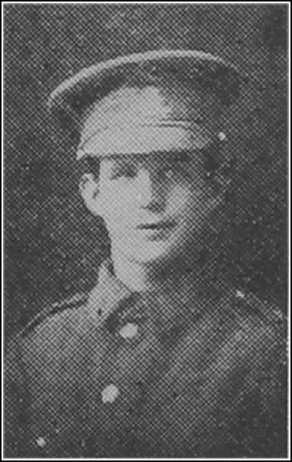
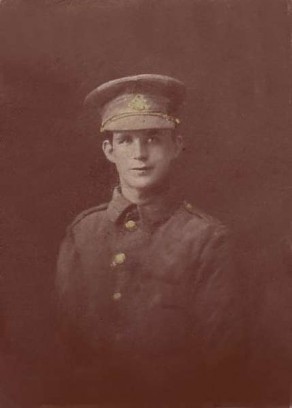
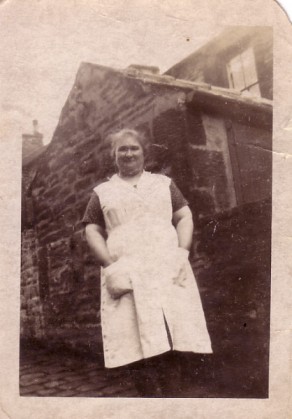
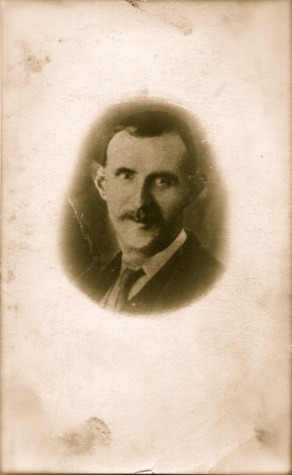



No comments yet.